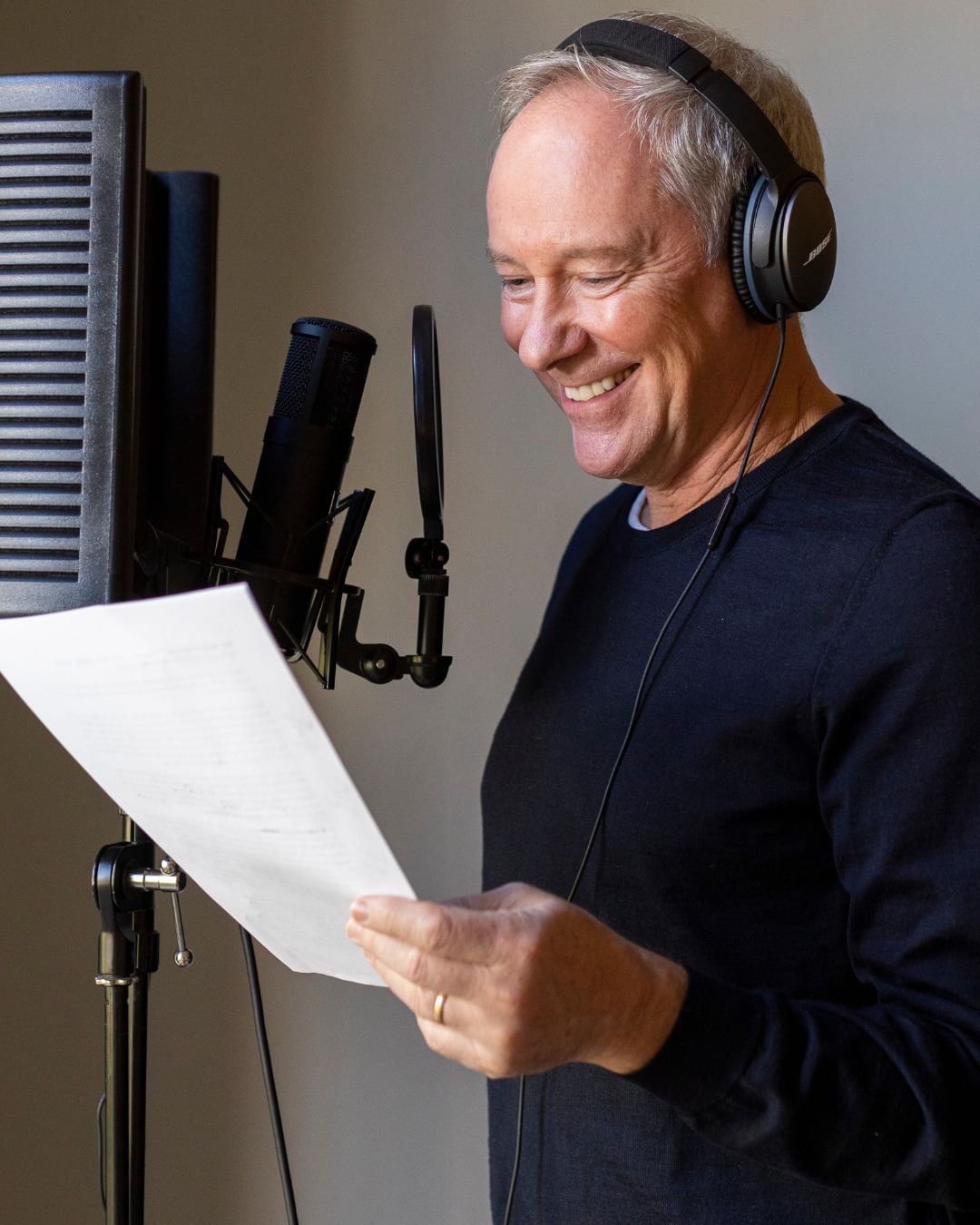Today, I’m exploring a topic that hits close to home for many of us: public speaking anxiety.
As a public speaking coach, I’ve seen firsthand how this fear isn’t just a personal battle but a common challenge among professionals in various fields.
The nerves can hit hard when presenting to a room full of colleagues or speaking at a large event. But I’m here to tell you it’s not an insurmountable obstacle.
With this blog, I aim to share eight practical strategies that can work for you in overcoming the jitters associated with public speaking.
Whether you’re looking to polish your existing skills or you’re someone who feels those familiar butterflies in your stomach, these tips are here to help.
Practice makes perfect
I’ve learnt that the key to easing those nerves lies in regular and deliberate practice. I don’t mean simply repeating your speech over and over again, but practicing with purpose.
Try rehearsing front of a mirror. It allows you to observe your body language and make adjustments in real time. Recording the rehearsal works as a treat because you can listen back to your voice and catch any nuances in your delivery.

I also recommend starting small – perhaps presenting your speech to a few friends or family members. This smaller, more familiar setting is a great confidence booster and a safe space to get comfortable with your material before stepping onto a bigger stage.
Trust me, integrating these simple yet effective practices into your preparation can transform your public speaking experience from nerve-wracking to exhilarating.
Know your material
Something I stress in my communications coaching is never to wing it. People wing it, thinking it will help come across as more natural, but all it does is cause them to overrun, go blank, and forget to deliver important messages!
Knowing your topic inside and out boosts your confidence. It’s like having a roadmap in an unfamiliar city; the better you know your directions, the less likely you are to get lost.

To make sure you’re on top of your material, organise your content in a way that flows naturally.
I find it helpful to break down complex topics into simpler, digestible parts and use mnemonic devices or storytelling to make key points more memorable. This not only aids content recall but makes the presentation more engaging for the audience.
Remember, a well-prepared speaker is confident, relatable, and persuasive.
So, invest the time in really getting to know your subject matter – it’s how the best leaders approach their communication.
Mindfulness and relaxation techniques
Mindfulness and relaxation are one way to control your public speaking anxiety.
These simple exercises should become a cornerstone of your preparation routine:
Take slow, deliberate breaths to calm your mind and ease tension.
Progressive muscle relaxation, where you consciously relax different muscle groups, starting from the toes and working your way up.
The benefits of these techniques in managing anxiety are immense, and I cover them in detail in my podcast about not letting your nerves derail you. You can also check out a live demonstration of the exercises below:
Such exercises help in centering your thoughts, maintaining focus, and reducing the physical symptoms of stress.
I encourage anyone facing public speaking fears to integrate these practices into their daily life, not just before an anxiety-inducing scenario!
That’s why I offer a free module on managing your nerves as part of my online public speaking course.
Regular practice can significantly improve your overall sense of calm and control, making you more poised to speak confidently when you’re ready.
Avoid caffeine and sugar before speaking
Caffeine and sugar, while tempting for a quick energy boost, can heighten anxiety and lead to jitteriness.
These substances can amplify our body’s stress response, making us feel more nervous and less in control.
Instead, I’ve found it beneficial to opt for water or herbal tea. Staying hydrated with water ensures that I can speak clearly and maintain my focus, while herbal teas like chamomile can offer a calming effect–which is why I’d never hesitate to recommend it in my public speaking training sessions.
Making this simple switch in my pre-speech routine can make a noticeable difference in your level of calmness and clarity while speaking. It’s a small change, but one that can significantly impact your overall performance and ease you into addressing an audience or colleagues.
Hire a professional public speaking coach
If speaking in professional settings is too debilitating, you can seek professional coaching.
Working with a communications coach offers a unique opportunity for personalised guidance and feedback tailored specifically to your needs and strengths.

Coaches can pinpoint areas for improvement that you might not have noticed on your own, and provide effective, targeted strategies to address them.
For example, a communications coach may feel your body language signals are great but that you require voice coaching to sound more confident.
If face-to-face sessions aren’t your thing, you can consider an online public speaking course, which is a cheaper investment and can be done at your own pace.
Develop a pre-speech routine
Developing a pre-speech routine is a powerful tool in setting the stage for a successful presentation. It’s about creating a ritual that you perform before every speech to get into the zone.
This could be listening to a specific song that calms your mind or energises, depending on the tone you want to set for your speech.
Sometimes, it’s about doing a particular stretch, or a series of yoga poses to release physical tension and centre yourself.
I also find repeating a personal mantra, like “I am confident and ready to share my message,” incredibly grounding.
This routine acts like a mental cue, signaling to my brain that it’s time to focus and perform. It’s a moment of self-care and preparation that personalises my approach to public speaking and makes a significant difference in my confidence and clarity as I step onto the stage.
Practice in the real environment
I always say this: get to the venue early if you can and familarise yourself with the space, understanding the acoustics, the layout, and even the feel of the podium or stage.
By doing this, you can visualise the event more clearly, plan where to stand, and how to engage with your audience effectively.
This familiarity can significantly eases your anxiety, as it removes the element of surprise and uncertainty about the environment.
Bonus tip: If you’re arriving early, have one-on-one conversations with some of the audiences you’ll be presenting to. Becoming familiar with your audience can take away the fear of the unknown.
Keep turning up
It’s true: the more you do it, the easier it becomes.
Every opportunity to speak in front of an audience, no matter how small, is a step towards gaining confidence and reducing anxiety.
It’s like building a muscle; consistent practice strengthens your public speaking skills and gradually diminishes the fear associated with it.
Each speaking engagement is a learning experience, offering insights into what works and what doesn’t, allowing you to refine your approach each time.
Over time, familiar patterns emerge, and what once seemed daunting becomes more manageable and even enjoyable.
This repetitive exposure also helps in desensitising the fear response. You start to realise that the worst-case scenarios you imagined rarely happen, and even if they do, they’re not as catastrophic as feared.
Wrapping up
Remember, public speaking nerves are normal. Everyone gets them. It’s about controlling them, and you can start by consistently:
- Practicing
- Being familiar with your material
- Performing various relaxation exercises
- Avoiding anything with caffeine and sugar
- Have a pre-speech routine
- Get there early and practice in the real environment
- Never giving up!
And it’s always worth supplementing your self-help practices with the support of an experienced public speaking coach who can provide you with more tailored guidance or enrol in an online public speaking short course.
Good luck! And if you want to hear more from me, you can find me on:
- YouTube
- Behind the mic on the Art of Communication Podcast



